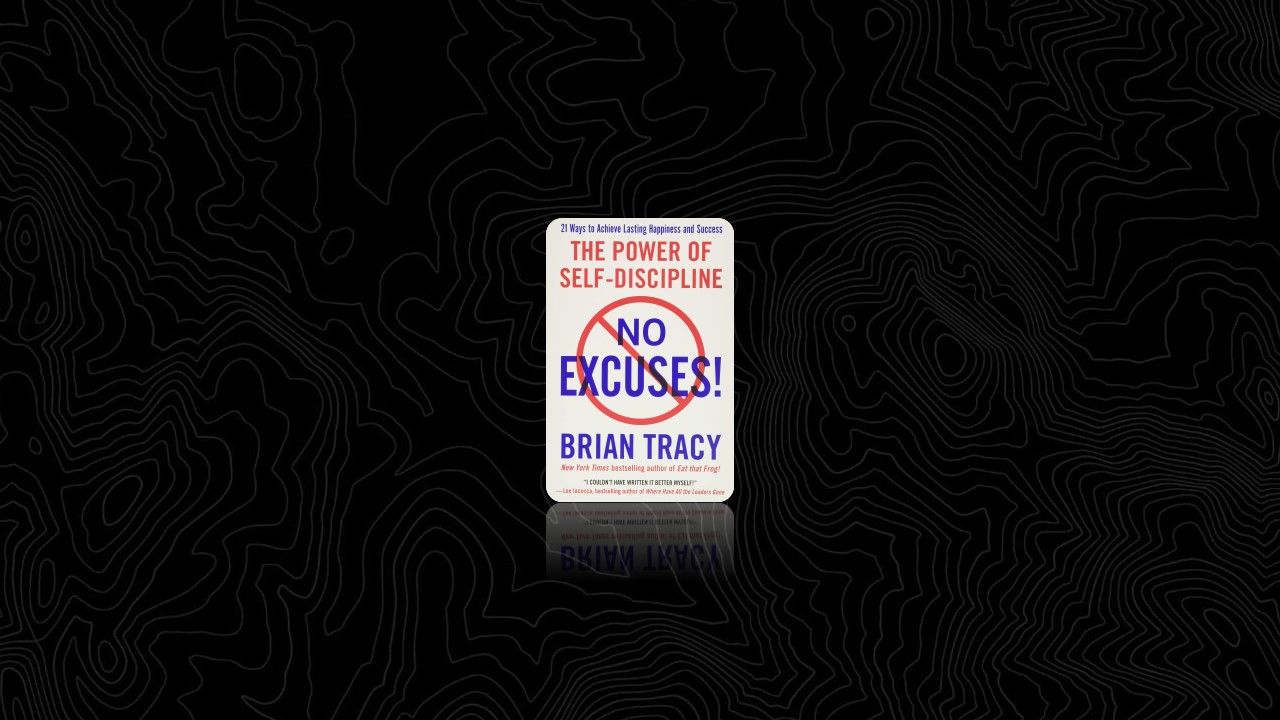Your success in life depends more on the person you become than on the things you do or acquire. As Aristotle wrote, “The ultimate end of life is the development of character.” In these chapters, you will learn how to develop and use discipline in order to become an excellent person. You will learn how to develop greater self-esteem, self-respect, and personal pride. You will learn the essential disciplines required for personal greatness and how to build them into your own character and personality.
Self-Discipline and Success
Why do some people accomplish so much more in their personal and professional lives than others? This question has occupied some of the very best minds throughout human history. More than 2,300 years ago, Aristotle wrote that the ultimate aim of human life is to be happy. He said that the great question that each of us must answer is, “How shall we live in order to be happy?”
Your ability to ask and answer that question correctly for yourself—and then to follow where your answer leads you—will largely determine whether you achieve your own happiness, and how soon.
Begin with your own personal definition. How do you define success? If you could wave a magic wand and make your life perfect in every way, what would it look like?
Do Your Own Thing
A popular definition of success is “being able to live your life in your own way, doing only those things that you want to do, with the people who you choose, in the situations you desire.”
In each case, when you begin to define what “success” means to you, you can immediately see things that you should be doing more of or less of in order to begin creating your ideal life. And the biggest thing that holds you back from moving in the direction of your dreams is usually your favorite excuses and a lack of self-discipline.
It’s not that you don’t know what to do, but rather that you don’t have the discipline to make yourself do what you should do, whether you feel like it or not.
Pay the Price
How can you tell when you have paid the full price of success? It’s simple: Look around you. There it is! You can always tell how much of the price of success you have paid by looking at your current lifestyle and your bank account. By the Law of Correspondence, your outer world will, like a mirror, always reflect the person you are and the price you have paid on the inside.
There is an interesting point about the price of success: It must always be paid in full—and in advance. Success, however you define it, is not like a restaurant where you pay after you have enjoyed your meal. Instead it is like a cafeteria, where you can choose whatever you want, but you must pay for it before you eat it.
Motivational speaker Zig Ziglar says, “The elevator to success is out of order, but the stairs are always open.”
Mental and Physical Fitness Need to Be Ongoing
Achieving success is like achieving physical fitness. It is like bathing, brushing your teeth, and eating. It is something that you need to do continuously, every day. Once you begin, you never stop until your life and career are over and you have achieved all the success you desire.
If you stop exercising for any period of time, you don’t maintain your fitness at the same level. You begin to decline. Your body and your muscles become softer and weaker. You lose your strength, flexibility, and stamina. In order to maintain them, you must keep working at them every day, every week, and every month.
The Great Virtues
There are a series of virtues or values that are usually possessed by a person of character. These are courage, compassion, generosity, temperance, persistence, and friendliness, among others. We will talk about some of them in Part 3 of this book. Coming before all these values, however, is the most important one of all when determining the depth and strength of your character: integrity.
It is your level of integrity, living in complete truth with yourself and others, that demonstrates more than anything else the quality of your character. In a way, integrity is actually the value that guarantees all the other values. When your level of integrity is higher, you are more honest with yourself and more likely to live consistently with all the other values that you admire and respect.
Do the Right Thing
One of the great questions for the development of character is this: “What kind of a world would this world be if everyone in it was just like me?”
Whenever you slip, whenever you do or say something that is inconsistent with your highest values, immediately “get back on your horse.” Say to yourself, “This is not like me!” and resolve that next time you will do better.
What You Dwell Upon Grows
If you are in a situation today in which you are not living up to your highest values, make a decision, this very minute, to confront the situation and straighten it out. The minute you do, you will once again feel happy and back in control.
There is an old Indian story: “On my shoulders are two wolves. One is a black wolf, evil, who continually tempts me to do and say the wrong things. On my other shoulder is a white wolf that continually encourages me to live up to my very best.” A listener asked the old man, “Which of these wolves has the greatest power over you?” The old man replied, “The one I feed.”
By the Law of Concentration, whatever you dwell on grows and increases in your life. When you think and talk about the virtues and values that you most admire and respect, you therefore program those values deeper and deeper into your subconscious until they begin to operate automatically in every situation.
Get Over the Mistakes Your Parents Made
When your parents withheld their love to punish you for not doing something they demanded, you might have grown up with deep feelings of guilt, unworthiness, and undeservingness. All these negative feelings could then intersect to make you feel like a victim, like you were not responsible for yourself or your life once you became an adult.
The most common feeling that we have as adults if we have been raised in a critical home environment is the feeling that “I’m not good enough.” Because of this feeling, we compare ourselves unfavorably to others. We think that other people who seem to be happier or more confident are better than us. We develop feelings of inferiority. This can become an emotional trap.
Responsibility and Control
When you accept responsibility, you feel strong, powerful, and purposeful. Accepting responsibility eliminates the negative emotions that rob you of happiness and contentment.
In every situation, the antidote to negative emotions is to say, “I am responsible.” Then look into the situation to find the reasons why you are responsible for what happened or for what is going on.
Your intelligence is like a double-edged sword: It can cut in either direction. You can use your intelligence to rationalize, justify, and blame other people for things you are not happy about, or you can use your intelligence to find reasons why you are responsible for what happened and then take action to solve the problem or resolve the situation. You can make excuses or you can make progress. You choose.
The Reward of Persistence
When you go the extra mile and do more than you are paid for or more than is expected, your self-esteem goes up. You feel more powerful and in greater control of your life. In your career, when you go the extra mile you put yourself on the side of the angels. The primary difference between winners and losers in life is simple: Winners never quit, and quitters never win.
You can increase your ability to persist by talking to yourself positively. Say these words: “I am unstoppable!” Before you begin any major undertaking, preprogram yourself by telling yourself, “I never give up.”
Before you can achieve anything worthwhile in life, you have to pass “the persistence test.” This is usually a “snap quiz” sprung on you unexpectedly with no warning. You suddenly face a major setback, problem, temporary failure, or even a complete disaster. When this happens, remind yourself that this is the “testing time.” This is when you demonstrate what you are really made of. This is when you show yourself and others the strength of your character and your true determination to succeed.
Resolve in Advance
When you resolve in advance that you will never give up, your success is virtually guaranteed. In the final analysis, nothing can really stop you but yourself.
In life, it doesn’t matter how many times you get knocked down. All that matters is how many times you get back up. If you continue to get back up and press onward, you must eventually reach your goal.
Each time you exert your self-discipline to persist in the face of adversity, you also increase your self-esteem and self-confidence. Then, as your self-esteem increases, you feel stronger, more powerful, and more unstoppable. When you feel better and stronger, you become more capable of persisting the next time—and then the time after that.


